Leisure Noise and Hearing, presented in partnership with Seminars in Hearing
Course: #32754Level: Intermediate 5 Hours 380 ReviewsThis 5-part webinar series is focused on the relationship between recreational noise exposure and hearing loss, based on select articles from a recent issue of the journal Seminars in Hearing (Issue 04 · Volume 38 · 2017). Guest editor, Dr. Elizabeth Beach and a team of leading experts will present a cross section of current research that sets out the potential risk that leisure noise exposure poses to hearing. The presentations also offer suggestions for ways audiologists can minimize and manage that risk.
View this Course on Demand
Click Register to watch the full course.
Learning Outcomes
- After this course, participants will be able to define hidden hearing loss and identify monitoring strategies that may be more sensitive than the audiogram.
- After this course, participants will be able to describe the risk of noise-related hearing loss to young people in evidence-based terms and discuss the limitations of personal hearing protectors as a protective strategy for young hearing aid wearers, and identify alternative approaches to hearing health promotion.
- After this course, participants will be able to characterize risk profiles and Hearing Health of PLD users in Australia and name ways to encourage appropriate PLD listening behaviors.
- After this course, participants will be able to explain a theory of why people like loud sound and explain how to use the theory to develop more effective interventions aimed at reducing noise exposure.
- After this course, participants will be able to identify factors that increase the risk of noise-induced hearing loss from recreational shooting as well as describe hearing loss prevention strategies for individuals exposed to impulse noise from recreational firearms.
Course created on January 30, 2019
Agenda
| 0-60 Minutes | Relationships Between Recreational Noise Exposure and Auditory Function, presented in partnership with Seminars in Hearing |
| 60-120 Minutes | More to Lose? Noise Risk Perceptions of Young Adults with Hearing Impairment, presented in partnership with Seminars in Hearing |
| 120-180 Minutes | Personal Listening Devices and Hearing Health: The Who, What, When, and Wear, presented in partnership with Seminars in Hearing |
| 180-240 Minutes | Understanding Why People Enjoy Loud Sound, presented in partnership with Seminars in Hearing |
| 240-300 Minutes | Prevention of Noise-Induced Hearing Loss from Recreational Firearms, presented in partnership with Seminars in Hearing |
Reviews
380 ReviewsPresented By
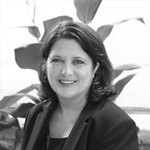
Colleen Le Prell
PhD
Dr. Colleen Le Prell is the Emilie and Phil Schepps Professor of Hearing Science at the University of Texas at Dallas, and head of the UTD Doctor of Audiology (AuD) Program. Translational research in her laboratory is directed at prevention of noise-induced hearing loss. She currently receives funding for her research from the National Institutes of Health, the Department of Defense (DoD), and 3M, Inc. She has previously received funding from several foundations and other industry sources.
More
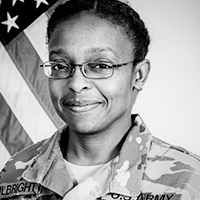
Angela Fulbright
AuD, PhD CCC-A
Dr. Angela Fulbright is a Major in the US Army and the deputy director of the Warfighter Performance Group at the US Army Aeromedical Research Laboratory (USAARL) in Fort Rucker, AL. Due to the lab’s unique location at the home of Army aviation, USAARL has a proud tradition and unique mission of conducting basic and applied research that addresses the needs of Army aviators who primarily fly rotary wing aircraft. Dr. Fulbright’s teams have received funding from programs under the Medical Research and Materiel Command and from industry. Dr. Fulbright serves as a reviewer and chair of Department of Defense programs that are dedicated to preventing hearing loss in Warfighters, enhancing/optimizing auditory performance and restoring hearing following exposure to blasts and operational noise.
More
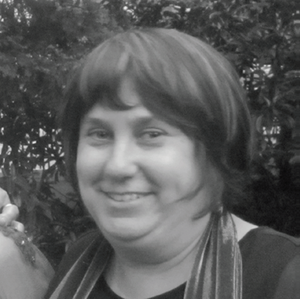
Lyndal Carter
PhD
Dr. Lyndal Carter has worked in the field of audiology for 30 years. The first half of Lyndal’s career was in clinical practice, which included; paediatric assessment and hearing aid fitting, adult rehabilitation, clinical management, and staff development. In 2003 Lyndal joined the National Acoustic Laboratories, where she is currently a senior research audiologist and interim Audiology Department Head. Lyndal has been involved in a wide range of research areas, including; hearing devices, hearing assessment, electrophysiology, epidemiology, hearing loss prevention, and the outcomes of children with hearing impairment. From 2009 – 2016 Lyndal lead a large-scale project investigating audiological indicators, leisure participation, attitudes, and leisure-noise exposure of adolescents and young adults. Lyndal has a special interest in the lived experiences of people with hearing impairment, advocacy, and community awareness of hearing issues.
More
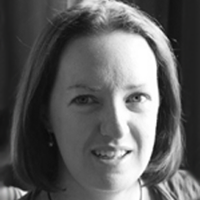
Megan Gilliver
PhD, BSc (Psych)
Megan Gilliver has a strong interest in the cognitive underpinnings of behaviour, and currently leads the National Acoustic Laboratories’ Behavioural Insights team. Her work at the National Acoustic Laboratories has included projects examining barriers to hearing rehabilitation, as well as understanding the motivators for promoting behaviour change for improved hearing health outcomes. A large part of her work has been in the area of hearing health promotion, examining factors that influence individuals’ decisions to reduce their noise exposure. She has a specific interest in leisure (non-occupational) noise where exposure is generally borne more from personal motivations and choice, rather than of the individual.
More
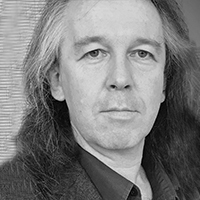
David Welch
PhD
David Welch has a background in psychology and auditory neurophysiology, and is interested and active in the area of community audiology. He has an interest in noise and its impacts on health, including noise-induced hearing loss, but also on health more broadly. In this, he has an active role in the Dangerous Decibels programme for reducing noise-induced hearing loss and tinnitus. He is currently Head of Audiology at the University of Auckland in New Zealand.
More
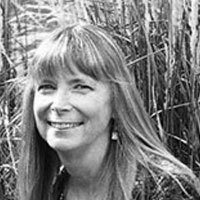
Deanna Meinke
PhD CCC-A
Deanna Meinke is currently a Winchester Distinguished Professor in the department of Audiology and Speech-Language Sciences at the University of Northern Colorado. She received her Master’s in Audiology at Northern Illinois University and her Ph.D. from the University of Colorado. Her research topic is centered on the early detection and prevention of noise-induced hearing loss. Currently, her research projects are focused on measuring the auditory risk from impulse noise exposure, developing of educational gaming to promote hearing loss prevention, and the implementing a wireless automated hearing test systems designed for use outside of a sound-booth in various settings. She has served as past president of the National Hearing Conservation Association and the Colorado Academy of Audiology and is past-chair of the Safe-in-Sound Award expert committee. As Co-Director of the Dangerous Decibels®program her passion for changing knowledge, attitudes, beliefs and behaviors related to the prevention of NIHL and tinnitus is highlighted by her international collaborations with colleagues in the delivery of Dangerous Decibels®educator training workshops in the U.S., Australia, Brazil, Canada, New Zealand and Singapore (www.dangerousdecibels.org). Her favorite sound is the call of Sandhill cranes at dawn. She would like to know what is your favorite sound?
More
Angela Fulbright: Financial: Angela Fulbright is employed at the US Army Medical Research and Materiel Command Joint Program, US Army Medical Research and Materiel Command Foreign Technology (and Science) Assessment Support, US Army Medical Research and Materiel Command Military Operational Medicine Research Program. Non-financial: Angela Fulbright is the US Army Medical Research and Materiel Command Joint Program Working Group Chair, Military Audiology Association membership and Joint Defense Veterans Administration Conference Education Committee Member, Congressionally Directed Medical Research Program (CDMRP) Hearing Restoration Research Program Panel Member, Small Projects in Rehabilitation Research (SPiREs) in the Department of Veterans Affairs Office of Research and Development’s Rehabilitation Research and Development Service (RR&D) – starting in 2019.She did not receive an honorarium from AudiologyOnline for this presentation nor direct where it should be donated per her presenter agreement.
Lyndal Carter: Financial: Lyndal Carter has received funding for research that may be discussed in this course (National Health & Medical Research Council, GNT 1033817, Department of Health, Office of Hearing Services, REI 244/0708). She received an honorarium for this presentation. Non-financial: Lyndal Carter has no relevant non-financial relationships to disclose.
Megan Gilliver: Financial: This study was part of Sound Check Australia a citizen science and research project under- taken by ABC Science in conjunction with the National Acoustic Laboratories, Sydney, the research division of Australian Hearing, and part of The HEARing Cooperative Research Centre (CRC) (http://www.hearingcrc.org/), a Commonwealth Government funded research consortium dedicated to hearing research. Funds for this project were provided by the Australian Government Department of Health and the Department of Industry and Science. Megan Gilliver received an honorarium for this presentation. Non-financial: Megan Gilliver has no relevant non-financial relationships to disclose.
David Welch: Financial: David Welch received an honorarium for this presentation. Non-financial: David Welch has no relevant non-financial relationships to disclose.
Deanna Meinke: Financial: Deanna Meinke is a professor Professor in the department of Audiology and Speech-Language Sciences at the University of Northern Colorado. She received an honorarium for this presentation. Non-financial: Deanna Meinke is Co-Director of the Dangerous Decibels® program.
Sponsor Disclosure: This course is presented by AudiologyOnline in partnership with Seminars in Hearing, a publication of Thieme Medical Publishers.
Content Disclosure: This learning event does not focus exclusively on any specific product or service.
Course participation information
To ensure you are ready to participate, please complete our short Test Drive to prepare your computer to view the course.
NOTE: Full attendance for all courses is mandatory. For self-study courses, this includes reading the full text, listening to the full audio recording, or watching the complete video, as appropriate for the format of the course.
Passing an online exam and completing a course evaluation will be required to earn continuing education credit.
Live Webinars allow presenter and participant interaction. The exam and course evaluation for these courses must be completed within 7 days of the event.
On-demand courses include texts, video and audio recordings of live webinars, and multimedia formats. The exam and course evaluation for on-demand courses must be completed within 30 days of course registration.
To participate in the course, complete the exam and course evaluation, and earn continuing education credit, you must be a AudiologyOnline member. Participants must complete the entire course; partial credit is not allowed.
AudiologyOnline is committed to ensuring accessibility to the widest possible audience. We are continually improving the user experience for everyone. If you have questions, requests, or would like to report an accessibility-related issue, please email [email protected]. We will review your request and respond in a timely manner.
Visit our Contact us page or give us a call if you have questions.
International Association for Continuing Education and Training
continued, LLC, DBA AudiologyOnline, is accredited by the International Association for Continuing Education and Training (IACET). continued complies with the ANSI/IACET Standard, which is recognized internationally as a standard of excellence in instructional practices. As a result of this accreditation, continued is authorized to issue the IACET CEU. continued, LLC, is authorized by IACET to offer 0.50 CEUs for this program.